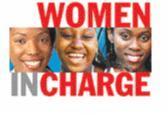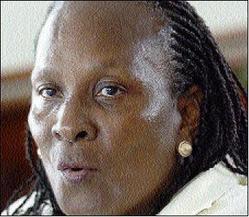Camille Taylor, Contributor


Newland-Martin
Veteran swim coach George Lopez can still recall the absolute shock he felt back in 1965 when his paraplegic protégée Sarah Newland-Martin told him she wanted to swim the Cross the Harbour race.
"I asked her if she was crazy!" he told The Gleaner, his voice still reflecting a sense of astonishment. "I said, 'You don't know what you're trying to take on.' Swimming across the harbour is not like swimming in a pool.
"It's rough water you're dealing with and there's nowhere to hold on, nowhere to stop and turn and on top of that they're a whole lot of jellyfish just waiting to devour you."
Lopez knew from experience having completed the arduous race himself and unlike his audacious charge, he had the full use of both his legs.
"But Sarah wasn't worried about any of that," he says.
Newland-Martin had been adamant despite her coach's misgivings. "I wanted to do it," she says. "I wasn't worried about any of the things he told me about. I wanted to show my disabled colleagues that there was literally no mountain too high to climb."
In the end, she not only finished the race, but she set a new world record for persons with disabilities. Newland-Martin went on to be named Sportswoman of the Year. That was just one of numerous highlights in an athletic career that saw her representing Jamaica at the highest levels, winning close to 40 medals and setting additional world and Pan-American records.
With her outstanding sporting career, Newland-Martin sent a clear signal to Jamaica and, perhaps, the rest of the world.
"She showed she had the courage and determination to prove that despite her disability, she can be as good as any able-bodied person," Lopez says proudly.
Exceptional career
That courage and determination also helped Newland-Martin to forge an exceptional career in social work, counselling, mentoring and in facilitating youth development. Starting as a volunteer at the Young Men's Christian Association (YMCA), she was appointed to the board of directors and then became general secretary. She now serves as national general secretary of the National Councils of YMCAs - Jamaica.
In this capacity, she oversees a team of 29 staff members, manages programmes across two locations with more than 320 youngsters in her care. The 'Y' offers a full slate of programmes and activities for individuals of all ages but its primary area of focus is social outreach and its principal target group is at-risk boys and men.
Most of the boys end up at the 'Y' because they have run out of options. Many have been living on the streets; others are brought in by parents and relatives who are no longer able to cope. Some have dropped out of school, others have little or no exposure to the formal education system and too many have been victims of abuse and violence.
After 20 years at the helm of the Y's programmes, Newland-Martin notes sadly that the challenges of social work have not eased with time.
"I think things are getting worse," she laments. "I've been involved with the YMCA since 1965 and I have seen a change in the young people that I've been working with. We're losing our young people to violence and I cannot understand why."
She adds, "There was a time when I used to have bags of weapons that I'd taken from children. In fact the only thing I've never taken from a child in the programme is a gun, but I've taken bullets."
While the issues encountered in social work have become more complex and even harrowing, it has also become increasingly more difficult to secure funding to do the work.
Powerful motivator
"There are many NGOs (non-governmental organisations) doing similar things and running to the same agencies to try and get help," she explains.
However, even with the uphill task of fund-raising and even after two decades of seeing the darker side of the Jamaican society, Newland-Martin's desire to help others remains a powerful motivator.
"I am not giving up," she states emphatically. "When you know that the young people want help and then when you see the transition in people's lives, that gives me my fulfillment."
And there is a lot she can feel satisfied about. More than 3,000 young men have benefited from the Y's social outreach programmes since she became general secretary. Numerous boys have received counselling and have had the opportunity to

